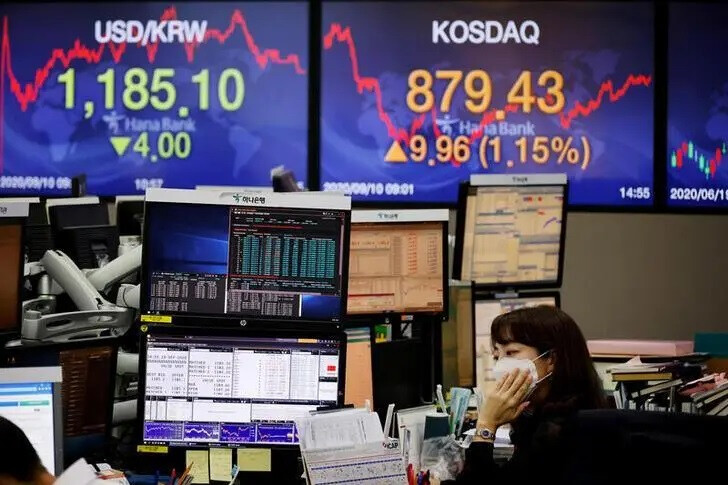
SEOUL – Foreign investors have shifted their strategy in the South Korean stock market, turning to a net-sell position on the KOSPI for the first time in four months. After a three-month buying spree from May to July, they sold a net ₩1.8 trillion worth of shares in August, largely influenced by the rising won-dollar exchange rate and disappointment over the government's tax reform plan.
The sell-off primarily targeted stocks that had previously led the market's rally. The largest net-sold stock was Samsung Electronics, with foreign investors offloading ₩1.06 trillion of its shares. Other major sales included NAVER (₩735.9 billion) and several stocks from the shipbuilding, defense, and nuclear power sectors (the so-called "Jo-Bang-Won" group), such as Hanwha Ocean (₩307.2 billion) and Doosan Enerbility (₩204.9 billion).
Conversely, foreign capital flowed into stocks with promising growth prospects. Kakao was the most-bought stock, with net purchases of ₩488.9 billion. This was driven by anticipation of upcoming changes to its KakaoTalk service and the release of a new AI agent. Foreigners also bought heavily into the automotive sector, acquiring a net ₩252.5 billion of Hyundai Motor and ₩178.7 billion of Hyundai Mobis, as well as ₩100.8 billion of Kia. These purchases suggest a belief that these companies can overcome tariff pressures and leverage their long-term competitive advantages.
In a notable move within the shipbuilding sector, investors sold Hanwha Ocean but bought Samsung Heavy Industries (₩205.4 billion), likely seeking out a relatively undervalued stock. Other companies that saw significant foreign buying in August included LG CNS, Korea Electric Power Corp., and Samsung Electro-Mechanics.
[Copyright (c) Global Economic Times. All Rights Reserved.]




























